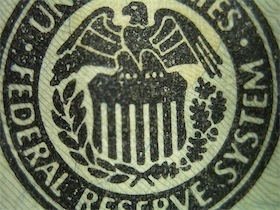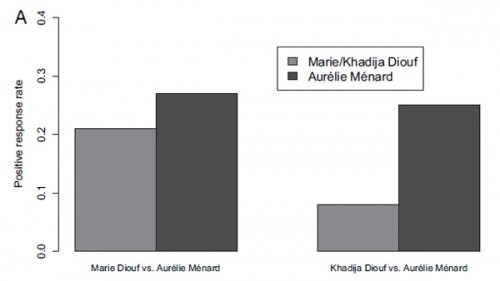Matthew Yglesias's Blog, page 2484
November 30, 2010
Hangover Theory
Karl Smith explains what's wrong with the view that today's recession is punishment for yesterday's overindulgence:
[W]e say that Germany's economy seems to be recovering. However, consumption in Germany is not rising. Consumption is flat. Working is rising. Employment is rising. That is what it means to be doing well. It means that more people are doing more work.
This is why it makes no sense to say that a recession is inevitable because we overconsumed. Because we bought too much it is now inevitable that we work less? Why does that make fundamental sense? Surely something is going wrong. Shouldn't we be working more to pay for all the stuff we bought.
This is what Paul Krugman called the hangover theory of recessions back in the late 1990s and it appeals to people because the moral logic is compelling. But as Smith points out, it doesn't make sense because of the fundamental difference between production and consumption. It's true that in the past we were consuming more than we produced and that level of consumption was unsustainable. But the need to bring consumption down below the level of output is no reason output has to fall.


Milton Friedman on Quantitative Easing

(cc photo by LateNightTaskForce)
One remarkable aspect of the recent conservative assault on QE2 is that the conventional wisdom on the American right is now well to the right of where Milton Friedman was ten years ago. Take these remarks on Japan from 2000:
In 1989, the Bank of Japan stepped on the brakes very hard and brought money supply down to negative rates for a while. The stock market broke. The economy went into a recession, and it's been in a state of quasi recession ever since. Monetary growth has been too low. Now, the Bank of Japan's argument is, "Oh well, we've got the interest rate down to zero; what more can we do?"
It's very simple. They can buy long-term government securities, and they can keep buying them and providing high-powered money until the high powered money starts getting the economy in an expansion. What Japan needs is a more expansive domestic monetary policy.
The Japanese bank has supposedly had, until very recently, a zero interest rate policy. Yet that zero interest rate policy was evidence of an extremely tight monetary policy. Essentially, you had deflation. The real interest rate was positive; it was not negative. What you needed in Japan was more liquidity.
According to Mike Pence and Paul Ryan, this is left-wing lunacy. The only solution to any economic problems is tax cuts for rich people.


Bias in the French Labor Market
A researcher named Claire Adida recently conducted an interesting experiment on bias in the French labor market. She constructed three CVs of single female 24 year-olds with two years of higher education and three years of secretarial or accounting work experience and sent them out. The difference is that one was constructed to seem like the CV of a Muslim of Senegalese ancestry, one to seem like the CV of a Christian of Senegalese ancestry, and one to seem like the CV of a white person.
Gwen Sharp explains:
The three chosen names were Khadija Diouf (an easily-recognizable Muslim first name, while Diouf is well-known as a common last name in France's Senegalese community), Marie Diouf (to represent a Christian Senegalese name), and Aurélie Ménard (a common French name with no particular religious associations). To highlight the religious differences, "Khadija" had worked at Secours Islamique, a non-profit, "Marie" had worked for Secours Catholique, another religious non-profit, and "Aurélie" hadn't worked for any religious-affiliated employers.
The fictional CVs were then sent out to employers who listed secretarial and accounting jobs with a national employment agency in the spring of 2009; the jobs were matched in pairs based on industry characteristics, size of the employing company, and the specific position. Every position was sent a copy of the CV for Aurélie; for each matched pair of jobs, one got Khadija's CV while one got Marie's.
Being perceived as Muslim seems to carry a significant cost:
My casual-ish impression is that in 2010 racism is generally a bigger problem in Western Europe than in the United States. We're obviously far from perfect in this regard, but progressives can I think legitimately count substantial progress in fighting bias as a major achievement and the European experience as illustrating the fact that the challenge is a non-trivial one.


Preparing for Economic Sabotage
Since Michael Gerson called out my post on preparing for the possibility of deliberate economic sabotage for criticism in the Washington Post the other day, I thought I might revise and extend my remarks.
Here's the point, without loaded language. If the economy does well in the short-term, that helps Barack Obama's re-election prospects. If the economy does badly in the short-term, that hurts Barack Obama's re-election prospects. John Boehner, Mitch McConnell, and other members of congress presumably have a sincerely held view that Barack Obama's re-election would be bad for the United States of America. Therefore, insofar as congressional Republicans understand that Obama's re-election prospects depend heavily on the short-term performance of the economy they have reason to hope—for the good of the country—that the economy does poorly. This is something any prudent president is going to have to keep in mind when he enters into negotiations over legislation that's likely to have a substantial impact on the short-term performance of the economy.
This is a structural feature of the American political system. Normally it's muted by the fact that responsibility for short-term macroeconomic stabilization is overwhelmingly delegated to the Federal Reserve's Open Market Committee; but starting in late 2008 and continuing to this day the Fed has decided that discretionary fiscal policy has an important role to play. What's more, historically America's political parties haven't been particularly disciplined or ideologically sorted which has complicated the incentive structure. Today's polarized parties, however, create some odd incentives even if you assume everyone is operating all the time in perfect good faith to try to advance the national interest.


Triangles Are Two Dimensional

Something that I think should be understood about the idea of "triangulating" via a proposal to freeze federal salary is that triangles are two dimensional objects. To triangulate properly you can't simply occupy a point between where the left and right poles are, you need to also move off the line.
Game this out a bit. Obama says (a) the short-term deficit is too high and (b) real wages for federal civilian workers are too high. But if (a) and (b) are true, why a nominal freeze? Why not a 3 percent cut? This move totally fails to achieve the goal of painting the opposition as unreasonable. Obviously any time there's a disagreement about a quantitative issue you need to be willing to settle on a semi-arbitrary midpoint but as an opening bid it's totally unstable.
Better triangulation requires a triangle. Liberals say spend more money on schools, conservatives say spend less. I say: School uniforms! That's a triangle. Now we're complicating the argument, introducing extra dimensions, giving people new wiggle room to bargain in, showing innovative thinking, etc.


Kim Jong-Il is a Good Drinker

The biggest scandal yet revealed by WikiLeaks comes from the summary of a conversation between Deputy Secretary of State James Steinberg and PRC State Councilor Dai Bingguo:
Regarding his recent visit to Pyongyang, Dai briefly recounted his two-hour meeting with DPRK leader Kim Jong-il. Dai said he was on relatively familiar terms with Kim, because he had met with Kim on several occasions in his previous role as Director of the Chinese Communist Party (CCP) Central Committee International Liaison Department (CCID). Dai admitted that in contrast with his discussion with Vice FM Kang (see below) his conversation with Kim was
not as direct and candid and joked that he "did not dare" to be that candid with the DPRK leader. Dai noted that Kim had lost weight when compared to when he last saw him three years
earlier, but that Kim appeared to be in reasonably good health and still had a "sharp mind." Kim told Dai that he had hoped to invite the Chinese official to share some liquor and wine, but that because of scheduling problems, he would have to defer the offer to Dai's next visit to North Korea. Kim Jong-il had a reputation among the Chinese for being "quite a good drinker," and, Dai said, he had asked Kim if he still drank alcohol. Kim said yes. Dai said he also met briefly with Kim Yong-nam, President of the Supreme People's Assembly, who invited him to attend the performance of a famous Chinese opera, "The Dream of the Red Chamber."
For the third time in a row, a WikiLeaks document dump has conclusively demonstrated that an awful lot of US government confidentiality is basically about nothing. There's no scandal here and there's no legitimate state secret. It's just routine for the work done by public servants and public expense in the name of the public to be kept semi-hidden from the public for decades.
Regarding the specific revelation here one can only regret that the author of the memo, US Ambassador to China Jon Huntsman, is a Mormon and thus perhaps unfamiliar with the nuances of drinking-related terminology. Is the idea here that Kim is a huge drunk, or that Kim has an unusual capacity for holding his liquor? And is that by western standards or merely by the standards of east Asia's more modest alcohol consumption? The public has a right to know!


Tales From the Dentist's Cartel
Complaining about barber licensing is fun, but the real damage of bad occupational licensing policies is done in the health and education sectors. Here via Adam Ozimek is a study from Morris M. Kleiner and Kyoung Won Park about the economic rents dentists receive in states where dental hygienists aren't allowed to clean teeth without supervision:
In this study, we examine dentists and dental hygienists, who are both universally licensed and provide complementary services to patients, but may also be substitutes as service providers. We focus on the labor market implications of governmental requirements on permissible tasks and the supervision of hygienists' activities by dentists. Since there are elements of monopsony in the market we examine, we use the model as a guide for our analysis. We find that states that allow hygienists to be self-employed have about 10 percent higher earnings, and that dentists in those states have lower earnings and slower employment growth. Several sensitivity and falsification tests using other regulated and partially regulated occupations show that our licensing measures are generally robust to alternative specifications. Our estimates are consistent with the view that winning the policy and legal battle in the legislature and courts on the independence of work rules matters in the labor market for these occupations.
The distributive implications among sellers of dental services are of some note (as Ozimek notes, this means that pro-dentist rules distribute income from poorer, femaler hygenists to richer, maler dentists) but the bigger problem here is the increased costs for patients. Clearly there are procedures related to dental health that legitimately require the services of highly trained dentists. But it seems equally clear that there's a great deal of useful preventive dental health work that cheaper, less-trained hygienists are capable of doing. Allowing them to practice their trade unimpeded would save money and, for the poor, can be the difference between having access to basic dental health services and not having it.


California Dreaming
I'm off for an exciting overnight trip to LA to speak at a couple of events on the USC campus. But never fear, blogging will continue!
Personally I like brown leaves and gray sky.


November 29, 2010
Endgame
I just got a warning:
— Amazing new German bike parking technology.
— DC government contemplating regulatory action to curb allegedly excessive supply of taxis, i.e. make things worse for customers and better for incumbent drivers.
— I, too, am a mild park skeptic.
— What do the cables tell us about Obama's Iran policy.
— Michael Linden on the pay freeze.
Ida Maria, "Louie".


Iran and Saudi Arabia

I think Mark Kleiman gets this right:
What could be better, from a Saudi viewpoint, than war between the U.S. and Iran? Note that the Saudis (and our other Arab quasi-friends) are willing to fight Iran to the last American. They have no interest whatever in doing anything themselves.
Again, rather than rely on private "secret" information to guide our analysis the best thing to do is to think about what's objectively known. For example, while potential disruption of global oil supplies is a major downside risk of war with Iran from a US (or Japanese or European or Chinese) perspective, such disruption could be hugely beneficial to oil exporters such as Saudi Arabia and Russia. What various actors say about a scenario like that is less revelatory than simply understanding the reality.


Matthew Yglesias's Blog
- Matthew Yglesias's profile
- 72 followers





